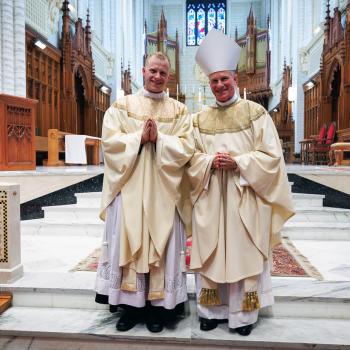Here she is, holding forth on “breast cancer awareness” campaigns and such like:
Shut up about breast cancer awareness. We are so frickin aware I’m gonna vomit. People are always “raising awareness” about things everybody knows about. It is the activism of cowards. Especially women, who are so desperate for safety and approval.
When I got lupus there was this big pull to “get involved” with what I call the “bourgeois disease complex”: the annual “months” and ribbons and in the case of lupus, really corny mascots like butterflies. I think I willed myself into remission just to avoid it. It was all so… female. Ugh.
As a citizen of the Soviet of Washington, I must attest a certain resonance with this. There are certain pieties which much be observed here the Land of the Green and the Home of the Gay. So we are perpetually being made aware of things that we would have to be in a coma not to be aware of. Did you know that AIDS is a deadly disease that we need to fight, not by keeping it in our pants and not swapping body fluids, but by wearing red ribbons and attending Pride Parades?
Were you aware that care for the environment is important and that we should respect the Earth? Total news flash to me. If I didn’t have Seattle media making me aware of that 24/7/365 my short-term memory loss would have completely erased that knowledge from my mind.
One of the things a culture seems to naturally do is establish a sort of liturgical repetition of Sacred Truths which it then repeats over and over and over. Which Sacred Truths get repeated over and over and over more or less seems to determine what that culture is actually about. So, for instance, we go to Mass to hear, well, basically the same thing repeated to us again and again, often in identical words (the Creed, and, most especially, the Words of Institution). Other structures of belief do the same thing, so you go to your favorite political or cultural group in order to hear, yet again, that liberals are evil dumbasses and we good guys value freedom and the little guy, or conservatives are corporate stooges and we good guys value freedom and the little guy, or Breast Cancer Awareness must be promoted because evil Males have minimized this dread disease, or what not. There’s a Sacred Story that must be spoken again and again which gives the group its cohesion. And sometimes that Sacred Story gets raised to the level of what Catholics call Sacred Tradition. When the sacred story is something relatively minor and gets this inflationary treatment, people usually laugh (as, for instance, in this classic essay by Chesterton in which he addresses a Lawn Tennis enthusiast who took the game waaaaaay too seriously).
But when the Sacred Story elevated to the status of Sacred Tradition is about some of the bigger issues in human existence–nations, blood, race, economics, sex, family, etc.–these things can often loom so large in our minds that we are tempted to elevate them to the altar and confuse them with the Word of God Himself. When that happens, it is almost a certainty that somebody is going to get hurt or killed as a result.
That’s what Paul is really warning about when he tells the Colossians: “See to it that no one makes a prey of you by philosophy and empty deceit, according to human tradition, according to the elemental spirits of the universe, and not according to Christ” (Colossian 2:8). This passage, one of the most misunderstood in Scripture, is not a denunciation of the Catholic idea of Sacred Tradition. It has not a word to say against the basic Catholic idea that apostolic Tradition comes down to us in written and unwritten form and constitutes the common life, teaching and worship of the Church. It doesn’t even have anything particularly hostile to say about human traditions, which are the lifeblood of normal human society and constitute the way in which civilizations function. (Imagine, if it’s even possible, a world with no human traditions: no birthdays, anniversaries, special meals, toasts, wedding rings, rites of passage, funerals, retirement parties, favorite games, favorite songs, or any other repeated group actions. Tradition is how we remember who we are.)
No, the only thing Paul warns about here is the elevation of mere human tradition to the status of Sacred Tradition: the confusion of your own Favorite Thing with the essence of the gospel Jesus Christ entrusted to his Church. Against that, Paul and the Church warn us with great force and it has ever been the task of the Magisterium to help us distinguish between mere human tradition and Sacred Tradition. Every time we are tempted to make our views about some ideology, or prudential judgement, or hot button issue into Sacred Tradition, or to minimize some aspect of the Tradition in order to get away with excusing our favorite ideological sins, the teaching of the Church is there to check us.
And yet, paradoxically, the Church is the strongest defender of those who savor their particular human traditions, yet remember they are merely human and not divine. So the Church loves the flourishing of local cultures and has been the Mother and patron of thousands of different human cultures. She likewise encourages all sorts of investigation and experimentation in disciplines like science, philosophy, politics and art. The only point where she draws the line is when somebody attempts to claim that “All true Catholics must adhere solely and entirely to capitalism/liberation theology/Impressionism/the Republican Party/Obamacare/Thomism/Americanism/the theory of the Divine Right of Kings/Predestinarianism/Darwinism etc.” The Faith is not a human ideology or tradition and therefore cannot be whittled down to fit any of these human traditions, however good and useful they may be.















